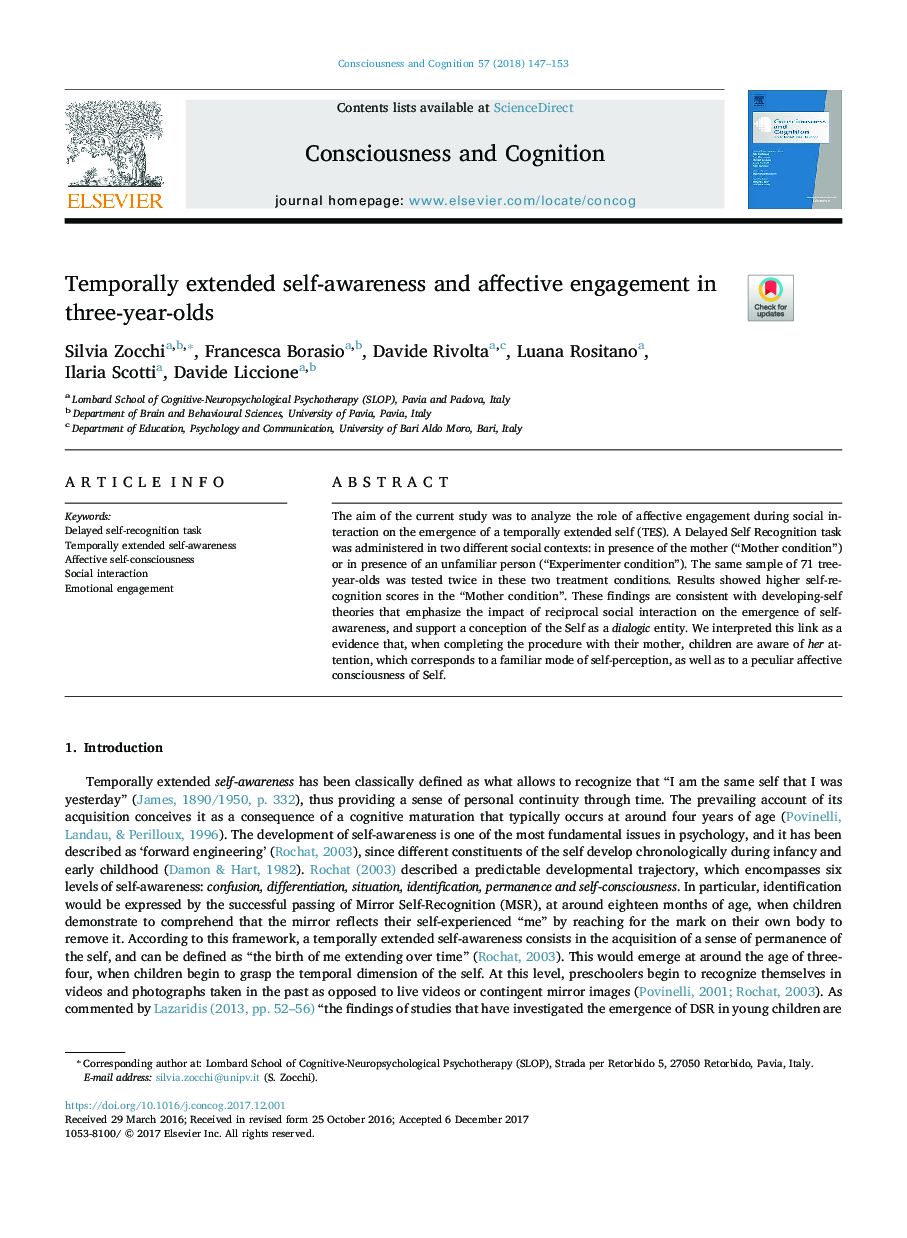| Article ID | Journal | Published Year | Pages | File Type |
|---|---|---|---|---|
| 7288242 | Consciousness and Cognition | 2018 | 7 Pages |
Abstract
The aim of the current study was to analyze the role of affective engagement during social interaction on the emergence of a temporally extended self (TES). A Delayed Self Recognition task was administered in two different social contexts: in presence of the mother (“Mother condition”) or in presence of an unfamiliar person (“Experimenter condition”). The same sample of 71 tree-year-olds was tested twice in these two treatment conditions. Results showed higher self-recognition scores in the “Mother condition”. These findings are consistent with developing-self theories that emphasize the impact of reciprocal social interaction on the emergence of self-awareness, and support a conception of the Self as a dialogic entity. We interpreted this link as a evidence that, when completing the procedure with their mother, children are aware of her attention, which corresponds to a familiar mode of self-perception, as well as to a peculiar affective consciousness of Self.
Related Topics
Life Sciences
Neuroscience
Cognitive Neuroscience
Authors
Silvia Zocchi, Francesca Borasio, Davide Rivolta, Luana Rositano, Ilaria Scotti, Davide Liccione,
